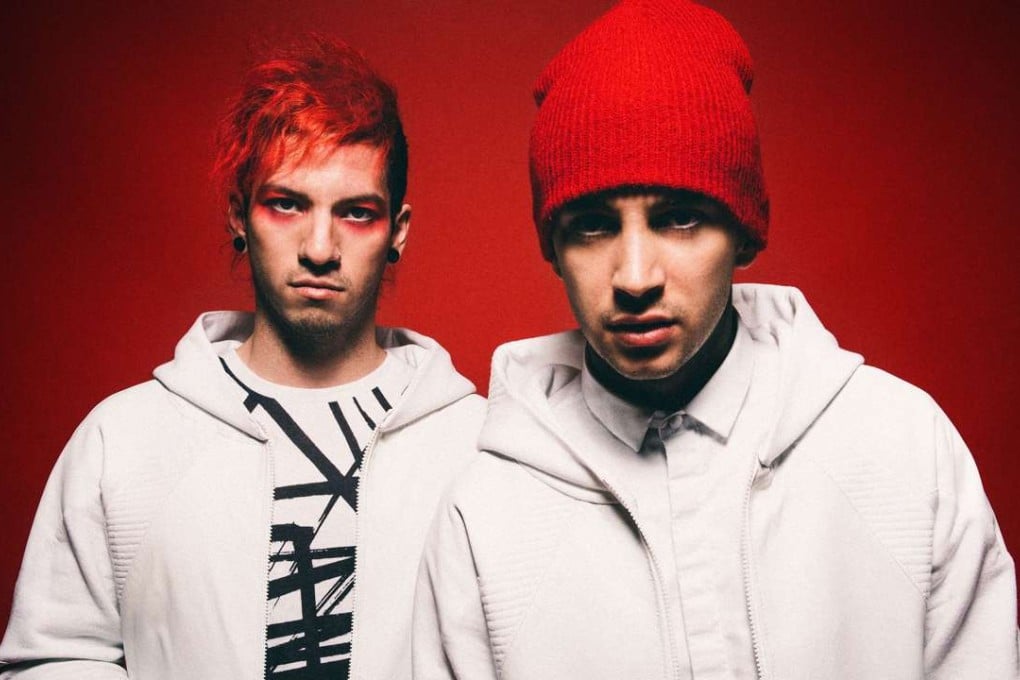Twenty One Pilots still have feet on the ground after debut album’s high-flying success
They didn’t start out because they wanted to be famous, but, says the American duo’s drummer Josh Dun, playing to larger audiences now is cool

Twenty One Pilots have tried to remain true to themselves since their 2009 start in Columbus, Ohio, with music that blends electronica, emo, hip-hop and balladry, and a strikingly visual stage show that often includes kabuki make-up and crowd surfing.
Things ratcheted up for the duo – singer/keyboardist Tyler Joseph and drummer Josh Dun – when two singles off their 2015 album, Blurryface, topped the alternative charts and invaded the pop charts. Blurryface is still in the top 15 on the Billboard charts and won a Billboard Music Award for top rock album last month. They also appeared live in Hong Kong in July last year.

It looks like everything on your tour is just about sold out.
As far as I know, I think most of the tickets are sold. It’s something we’ve been looking forward to for a long time, this summer tour. We’ve been working on it since January or something like that. I’m just excited that we get to continue to travel and play music and people still care.